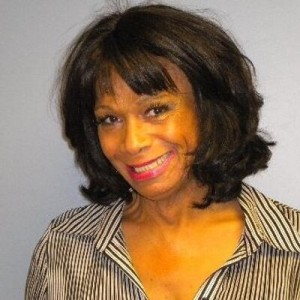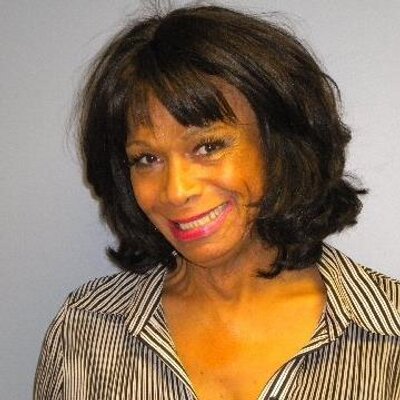I am a 60-Year-Old Trans Female Living with HIV

My name is Helena and I am a 60-year-old transgender female living with HIV. I am not a victim. An HIV/AIDS diagnosis is NOT a death sentence, but is similar to living with breast cancer or diabetes, which through some lifestyle changes, are manageable diseases.
I was diagnosed with HIV and AIDS in 2002, and was told I would not live more than six months, and at best, a year. Along with my doctors, I believe that I was a “late tester,” meaning because I was diagnosed with AIDS—a late stage infection—and not HIV, I likely contracted HIV 15 to 20 years before showing any sign or symptoms. Because people can carry HIV/AIDS asymptomatically, it is important to be tested on a regular basis to avoid a late test and spreading the disease.
My greatest gift during the years that I have been living with HIV/AIDS has been the development and recognition of how wonderful and precious life is and can be. In the years before I knew I had contracted HIV, I suffered from depression and bipolar disorder, both of which required medication. I felt a sense of hopeless isolation that several times brought me to believe suicide was my only option to escape the pain. I lived as a male during this time in my life and felt trapped in a male body. I did not have the knowledge of what was happening to me, or the support of the LBGT community, family, or friends because I kept quiet about my authentic self. I worked for the church and kept to myself. I was not an active sexual person by nature; instead, I “married” everyone I went to bed with. I have had seven great loves in my life, and the greatest love of my life passed on after 9 years of happiness together. I am very grateful for the shared collective experiences with these wonderful partners.
I will be the first to admit that along the way, I made some bad decisions because of loneliness, depression, and desire. You win some, you lose some, and that’s how life works, but hopefully we learn from these mistakes and learn to improve the quality of our lives.
The most important thing I learned in accepting myself as transgender and also living with HIV/AIDS was about stigma. I realized that my fear of disclosing my HIV/AIDS status was extremely unhealthy and only contributed to my loneliness and isolation, and would cause me to indeed die faster. The complications that come with being over age 50 and living with HIV are numerous. For example, I suffer from a greater degree of fatigue because the virus has brought on an accelerated aging process in my body. However, I have not let this slow me down much. I serve on the Chicago Area HIV/AIDS Planning Council, which was created to help manage and allocate funds to some 40,000 persons in 23 zip codes and nine counties to provide primary health care for HIV/AIDS patients, including mental health counseling, medical case management, housing, dental and many prevention programs in the community.
I also speak at colleges about AIDS awareness and give presentations on cultural competency to medical students, because I do not believe there are enough geriatric doctors coming out of colleges who understand the need to address the growing aging population living with HIV. I have been invited to the White House meetings that address the health disparities of women living with HIV/AIDS. I also attend college, and even as a 60-year-old student I am very pleased with myself for holding down a 4.0 average for the third straight semester.
My friends, if these activities (many of them volunteer jobs) sound unique, or that it seems like I do a lot, I only bring them up to demonstrate how conquering the stigma and shame of HIV/AIDS has actually provided me an awareness of how to live and enjoy my life MORE. I am more productive living with HIV/AIDS than I ever was.
In the Giving There Is Receiving
I encourage older adults to run, not walk, to the nearest computer and get busy. The aging community needs to be better informed and have better access to information on resources to improve the quality of their lives. The computer is also a very handy advocacy tool. Go to the White House webpage to check upcoming legislation in the House, such as Medicaid issues or the Affordable Health Care Act of 2010.
When I was diagnosed with AIDS in 2002, I could barely put a sentence together. But I started where I was, and with the little I knew, and applied a principle I was taught in my youth during the sixties: one person can serve many for the betterment of all. I knew I had a voice in this thing called life and wanted to share my experiences to hopefully help someone else from failing. I sought professional counseling to better understand my depression. I started attending meetings and listening to the issues that impacted me. I visited my local library where the staff taught me how to set up an e-mail address. I purchased a computer and I kept at it, asking for help along the way. Suddenly, I was not alone anymore and an entire world opened up to me. I became better informed about my healthcare when I visited my doctor. I double-checked everything my pharmacist told me on the computer, and pretty soon I was holding meaningful conversations with my pharmacist about my medication.
I feel that this country’s next social revolution is going to be education. I want to be educated on the issues that affect the community and to be a part of this experience. We aging folks are strong and resilient. We know about the Peace and Student movements that happened on campuses throughout this country in the 60s, and the Gay Rights movement because many of us were there. I say, let us go forward with this legacy in mind and inform our government and elected officials what we require in order to live a life of dignity and grace in our twilight years while serving our community.
It’s time for people to become informed and engaged in the process of developing laws and raising consciousness of our present needs as older citizens, for those of us who are here now as well as those who are coming. People with HIV/AIDS are living longer lives and there is a pressing need for culturally competent health care workers. I feel and know I am empowered to face this awesome task. HIV/AIDS is not just an LGBT issue but a community and national issue as well. I am concerned about the readiness of the health care and aging service providers to care for those of us who will be on this earth the longest, because it impacts my sense of dignity as a human being. I have a better sense of community after my diagnosis, and understand now that I am a part of this mess and I must face my responsibility and be accountable to the community as well.
Today I am engaged in life in a positive way and know I have something of value unique to me: my life experience, which I can offer as a guide post for others searching for well-being. Now, when I go out in public, people come up to me and thank me for my courage and reveal to me I said something in a presentation or film that helped them deal with their own shame or guilt. I feel empowered today and very blessed to be able to serve the community I so dearly love and be a member of this community.

